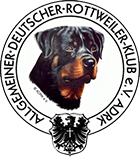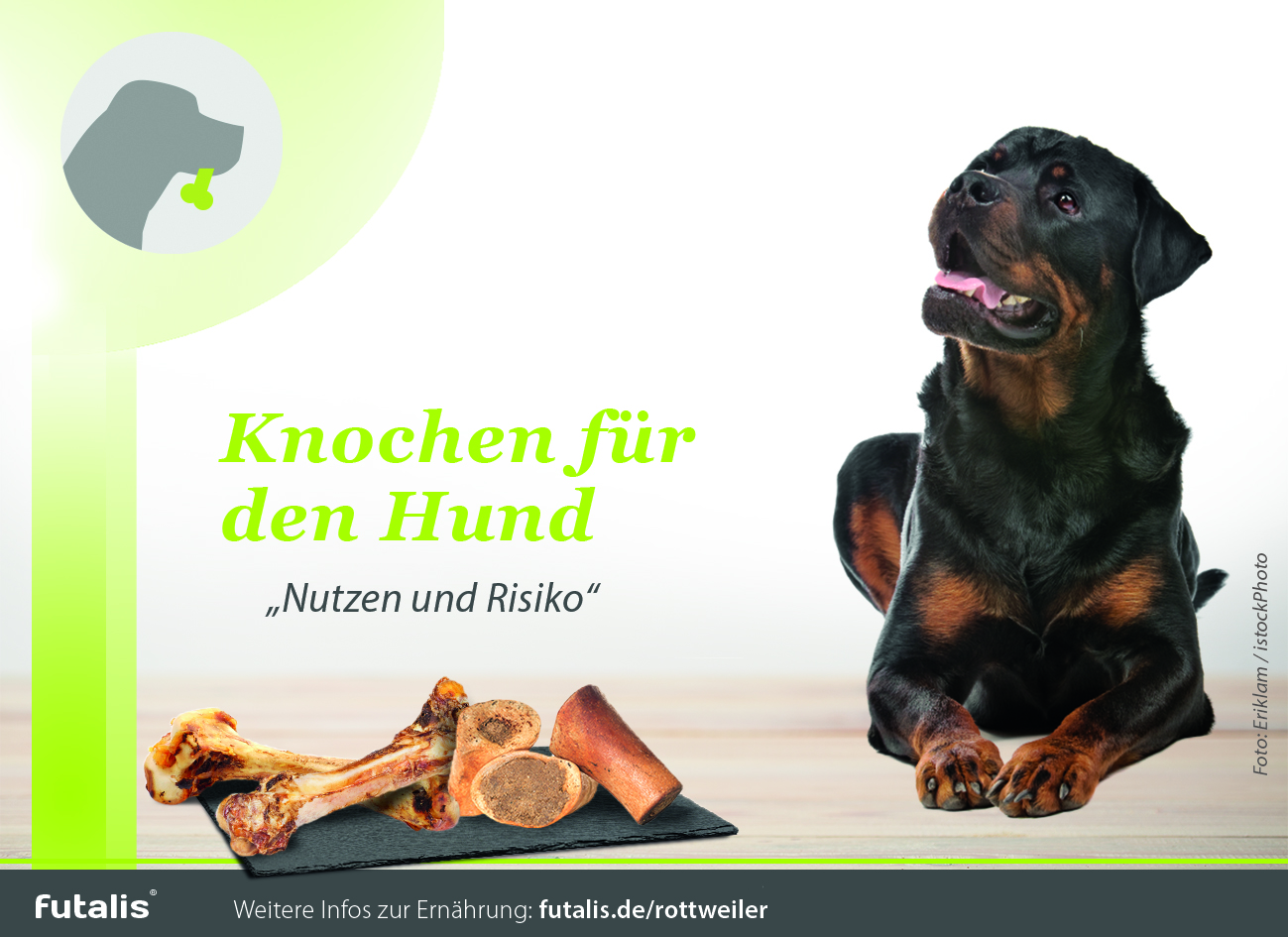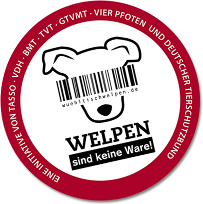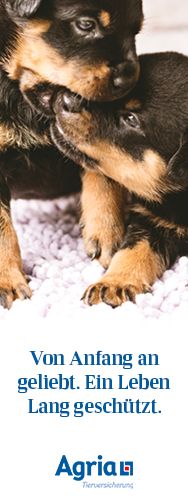| ADRK |
| Allgemeiner Deutscher Rottweiler-Klub e.V. |
Can I feed my dog a bone every now and then?
Tanja M. would like to know: Can I feed my dog a bone from time to time?
Feeding bones to dogs is the subject of much controversy. Bones consist mainly of connective tissue, but also contain large amounts of minerals - especially calcium in very large quantities, but also phosphorus, magnesium and zinc. Marrow bones and fleshy bones also contribute to the energy supply. Bones are often used to supplement mineral-poor food rations, but also for dental care or to keep dogs occupied. It should be noted that it is not possible to precisely estimate the extent to which minerals can actually be released from the bone and absorbed into the metabolism. The exact supply of calcium, for example, is therefore uncertain. If too much bone is consumed, there is an increased risk of over-supply of minerals and constipation due to so-called "bone faeces".
Hard or splintering bones also increase the risk of tooth fractures and injuries in the oral cavity and internal digestive organs. How much bone a dog can tolerate depends largely on its size and age, on the type of bone, but also on the composition of the other food it is given.
Assuming that the amount of bone fed should supplement a ration low in minerals - for example a fresh ration of meat and vegetables - for an adult dog, a daily amount of 0.5 to 1 g bone per kg body weight of the dog is recommended to cover the calcium requirement. Assuming complete utilization and absorption in the intestine, 35 g of veal bone per day is sufficient for a large dog with a body weight of 45 kg, for example. A smaller dog with a body weight of 10 kg would already be sufficiently supplied with calcium with 8 g of veal bone per day. This is not much when you consider that a calf bone of about 30 cm in length weighs more than 1 kg. Meaty bones or fresh chicken necks contain fewer minerals and are therefore needed in larger quantities to cover the calcium requirement - depending on the bone and meat content.
As the dog's intestines can only absorb limited amounts of calcium at a time, the required amount should be provided every day instead of, for example, feeding a large piece of bone once a week to cover the entire weekly requirement. This would make it difficult to estimate the actual amount of minerals ingested and would also increase the risk of constipation if the minerals not ingested are excreted as "bone feces". If the individual requirement is not taken into account and too much calcium is provided, this can result in an oversupply - in adult dogs, urinary stones in particular should be mentioned here, which are caused by increased excretion of excess minerals via the kidneys and bladder, but bone metabolism disorders can also occur.
In particular, if the dog already receives calcium with the other food, for example through a residual bone content in the meat fed, eggshells or mineral powder, the amount of additional bone should be reduced accordingly. An additional supply of calcium is not necessary and not recommended, especially when giving ready-made food (complete food for dogs).
If the dog is only to be kept busy chewing from time to time, the use of very large, hard, non-splintering bones can be a solution if the dog only gnaws on them a little and does not eat them. But even here there is always the risk of tooth fractures, which must be taken into account.
Compared to adult dogs, the need for calcium is significantly higher in puppies and young growing dogs as well as in pregnant or nursing bitches. The requirement depends on many factors, in particular the age and size of the dog (breed), and in the case of breeding bitches also on the number of puppies and weeks of lactation. It is therefore not possible to make a general statement about how much bone a growing dog or a breeding bitch can consume per day without causing under- or oversupply. In young dogs, calcium is also absorbed in larger quantities in the intestine than in adult dogs and they are therefore less protected against oversupply.
In addition, an inadequate supply of calcium during growth, pregnancy or lactation has far more serious consequences for bone formation and skeletal maturation in puppies than in adult dogs. The risk of injury from bones is also significantly higher in puppies. For this reason, feeding bones to puppies and young dogs should be avoided wherever possible and the mineral supply should be ensured by a balanced mineral powder or ready-made food adapted to their needs. A detailed ration calculation taking into account all dog characteristics is therefore strongly recommended for puppies.










